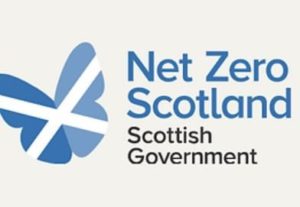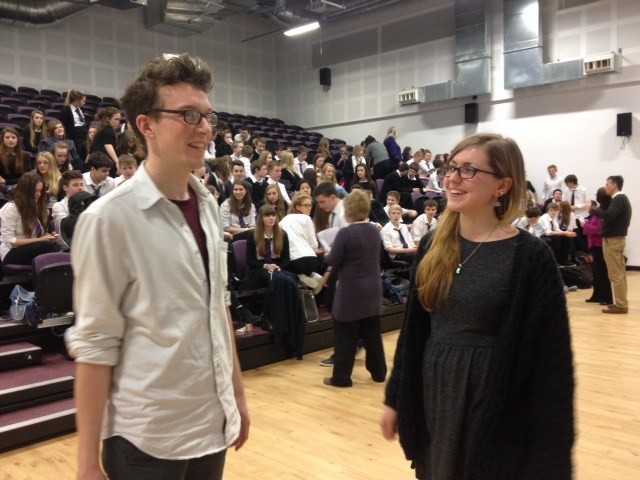 Registration for this year’s Scottish Learning Festival (SLF) is now open. SLF 2016 will focus on promoting excellence and equity for all through the key themes of:
Registration for this year’s Scottish Learning Festival (SLF) is now open. SLF 2016 will focus on promoting excellence and equity for all through the key themes of:
• school leadership and school improvement
• assessing children’s progress and parental engagement
• teacher professionalism
There are a number of seminars exploring how these themes can be addressed through learning for sustainability. These seminars include:
Wednesday 21st September 2016
Learning for sustainability, leadership and school improvement
Ian Menzies, Education Scotland
Focusing on key drivers from the National Improvement Framework, including leadership, teacher professionalism and parental engagement, this seminar will explore how one school has developed a whole school approach to learning for sustainability as an integral part of their school improvement process. Seminar Code: D2E
Global learning partnerships: Inspiring today’s global citizens through career-long professional development, Georgea Hughes, The Wood Foundation
Aberdeen City and Aberdeenshire education teams share their experience of global learning partnerships; showcasing examples of partnership working and interdisciplinary practices which support and encourage young people to become thinkers, questioners, challengers and responders in a globally sustainable way. Seminar Code: D2C
Outdoor learning and Curriculum for Excellence
Daniel Moncrieff, FSC Scotland
Outdoor learning is increasingly being used as a powerful tool across all subject areas in Scotland, and in both primary and secondary schools. Our charity provided outdoor learning experiences for over 165,000 people last year, and during this seminar we will explore some of the different ways we work with schools to raise attainment in literacy, numeracy and other curriculum areas through residentials and day visits. The focus of the discussion will be on activities teachers can utilise to access outdoor learning environments and make these learning experiences as powerful as possible. Seminar Code: M1A
Outdoor learning – a whole school approach to raising attainment
Jenny Watson, Middleton Park School, Aberdeen
We will share our effective outdoor experiences to promote excellence and equality for all. Our outdoor learning has successfully raised attainment across the school and has been pivotal in our journey to excellence. Our sector leading approach to embedding the principles of GIRFEC in our outdoor learning
have been commended by HMI. Seminar Code: M1D
The James Maxton and WW1 project: a collaboration between teachers and archivists
Michael Gallacher, Glasgow City Archives
The seminar explores the lessons from the James Maxton and WW1 project, a collaboration between archivists, and primary and secondary teachers from Glasgow, supported by Education Scotland. It examines how partnerships create resources to enrich learning outcomes, empower teachers and engage pupils with unique, interdisciplinary sources of evidence. Seminar Code: K3B
A smorgasbord of support for practical food education
Lorna Aitken, Education Scotland
Join us at the table to discuss current ingredients within food education in Scotland. From self evaluation and support around whole school engagement with Better Eating, Better Learning to assessing pupil progress in practical food experiences, we will aim to fuel your learning with inspiration from colleagues across Scotland. Seminar Code: D2B
GIRFEC through eco-schools co-curricular participation
Dugald MacGilp, Keep Scotland Beautiful
This seminar draws on the experience of three school clusters in raising attainment through co-curricular participation. We will hear from students, teachers and education research staff about successfully achieving GIRFEC through participation. There will be the opportunity for attendees to discuss their experiences and to learn about the refreshed Eco-Schools programme. Seminar Code: B1D
Our 5Rights: Digital rights of children and young people
Scotland’s 5Rights Youth Commission
Young Scot, Scottish Government and 5Rights introduce Scotland’s 5Rights Youth Commission – a diverse group of young people passionate about their rights online. We will hear from them what their ‘5Rights’ mean to them, and how children and young people can be empowered to access technology creatively, knowledgeably, and fearlessly. Seminar Code:C2A
Thursday 22nd September 2016
Throwing out the plastic; constructing an environment which supports the development of high quality creative play, Catriona Gill, Craigentinny Primary School, Edinburgh
This practitioner enquiry used high quality self-evaluation to make deep and sustainable improvements to practice with real benefits for learners. The enquiry explored the effect of changes made to the nursery environment in order to cultivate creativity and develop opportunities for free flow play. Seminar Code:D1F
Rights made real: Rights-based learning in action
Christine Creaney, South Lanarkshire Council
South Lanarkshire Council’s fully accredited Rights-based learning model – Making Rights Real – has been embraced by both primary and secondary schools within and beyond the authority as a practical and effective conduit to achieving equity for all, improving school ethos and deepening engagement with
parents and the wider community. Seminar Code:B1G
Recognising and realising young people’s rights in youth work (resource)
Nicola Sykes, Education Scotland
This seminar will provide an introduction to the Recognising and Realising Children’s Rights resource for youth workers. The passing of the Children and Young People’s Act (Scotland) 2014 places further duties on Scottish Ministers and public organisations in relation to the United Nations Convention on the Rights of the Child (UNCRC). This important legislation, enshrines in the education system enhanced duties in relation to the UNCRC. Recognising and realising children’s rights permeates the essence of youth work. The new resource supports youth work practitioners knowledge and understanding and invites reflection on how young people’s rights are realised in policies and practice. Seminar Code:A2H
Walking back in time
Donald Macdonald, Sustrans
Every local community has a story to tell. From the Romans, to Victorians and WW2’s Home Front, there is a story children can use to put their learning in context. This outdoor learning project uses active travel to engage children in learning and discover more about the place they live. Seminar Code:K3H
You can view the full conference programme here .
 Join communities, schools, businesses and individuals across Scotland taking action on climate change. Climate Week celebrates progress – and shows us all how to go further.
Join communities, schools, businesses and individuals across Scotland taking action on climate change. Climate Week celebrates progress – and shows us all how to go further.















